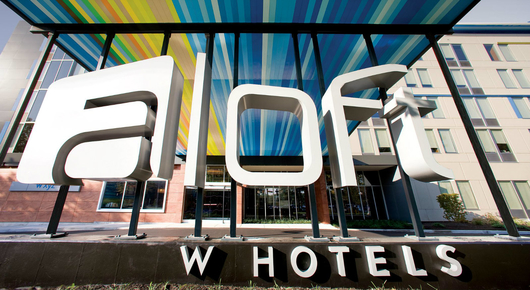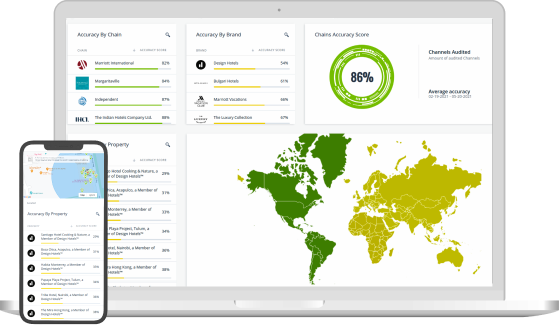These are undoubtedly exciting times for the technology industry. New tech is coming through at seemingly breakneck speed with advanced developments in AI, and every business in travel from OTAs to airlines are exploring how they can use them to enhance their business.
Historically, the general consensus within the hotel business was that the significant installed base of older technology, both hardware and software, prevented more effective hotel management and marketing. The general view, particularly among the smaller hotels, was pretty much as long as it’s adequate, hoteliers see little incentive to replace it.
Pre-pandemic reports show that hotels spent around 2.5% of net room revenue on new technologies.
When the travel business was turned on its head other sectors such as OTAs used the downtime to spend millions on technology.
Now we’ve come through the other side, and I’m still hearing stories about hotels being afraid of change or relying on fragmented systems requiring software to be pieced together from multiple companies.
Meanwhile, hotels are continuing to lose money to intermediaries, like OTAs, when there is tech that can help secure direct bookings. Global labour shortages are further adding to the problem.
What we’re reading and hearing in all this noise is that hotels need to learn from their mistakes. The fact is that contrary to what is being reported and said about this, hospitality has moved on, and quite significantly.
The Hotelier Technology Sentiment report revealed that use of popular hospitality technology increased by 31% during the pandemic, with the adoption of new systems such as contactless and digital payments.
The volume of group travel is expected to rise next year, and RFPs, which have already been reduced by 30 days, will continue to drop.
Hoteliers have kicked back by placing more capabilities into guests’ hands. Digital tech for room block management being an example – allowing fewer people to manage more, administering live updates on room blocks and upsell opportunities.
As inflation takes hold this year and rising energy costs continue across Europe, hoteliers are seeking to safeguard profitability.
Internal business intelligence systems will play a key role through 2023 and beyond. Hotels will deploy business intelligence tools to analyse data and consumer preferences. Hotels need to drill down into the detail of the business to find out what works and data will provide the information to make those crucial decisions.
AI will automate the mundane, freeing up teams to deliver the experience guests expect and are paying for. With big data, personalisation once considered a pipe dream for hotel marketing teams, is now becoming a reality as hotels leverage much richer guest profiles and preferences.
The fact is the hotel sector is a mainstream asset class for pension funds and institutional investors. These financial institutions have a requirement for data and want to see how their assets are being managed.
The hospitality sectors, including restaurants and bars, went through a similar modernisation process three or four years ago. It was painful but necessary to make their business models fit for investment once again. Now, it’s the turn of hotels and they are stepping up to the plate.
The same can be said of sustainability and environmental issues. New ESG initiatives such as Responsible Stay which was launched by The American Hotel and Lodging Association last year, is being embraced by hoteliers to optimise energy efficiency through operational improvements and clean energy tech.
The hotel industry is beginning to witness real-world benefits from technologies such as big data and machine learning, while blockchain has yet to fully realise potential uses.
As for Augmented Reality and the Metaverse, there’s still a way to go before it hits mainstream but the possibilities are exciting.
Despite the wave of noise to the contrary, hoteliers are investing in technology and do not consider themselves tied to legacy systems. They know that waiting for tech is no longer an option and there are plenty of vendors ready and waiting to embrace this digital transformation.



